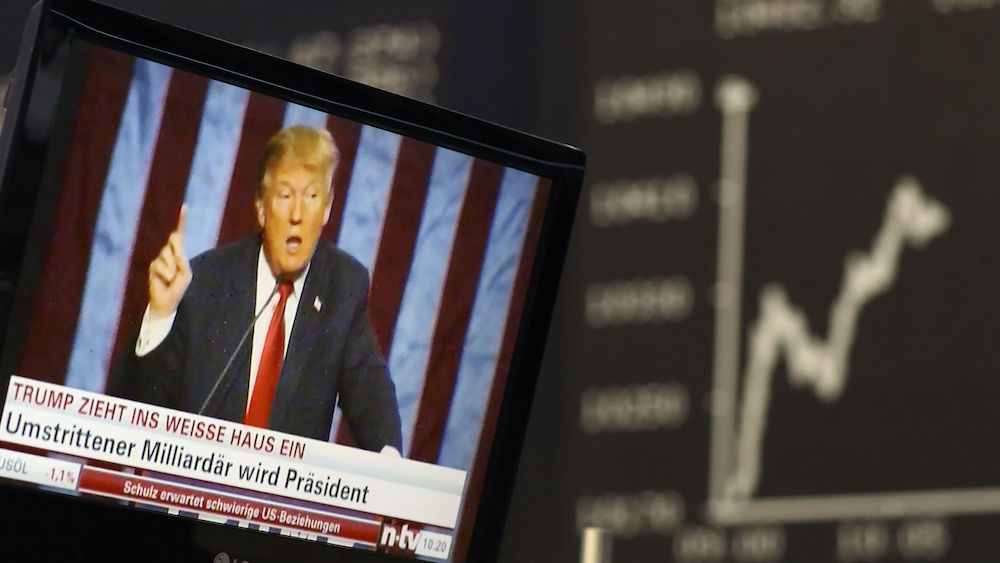Brexit vote or no Brexit vote, most observers in Germany counted on a Hillary Clinton presidency. The unexpected outcome of the US elections has politicians and the media worried.
Had Germans voted for the next US president, Hillary Clinton would have been a shoo-in, with close to three-fourths of voters opting for the former secretary of state. Thus when one of the United States’ closest allies woke up, it was, in the words of US Ambassador to Germany John B. Emerson, “a WTF moment.”
Bewilderment – and thinly disguised distrust – could also be felt in Chancellor Angela Merkel’s short statement. After congratulating President-elect Trump, she felt the need to remind the incumbent: “Germany and America are connected by common values: democracy, freedom, respect for the law and for human dignity irrespective of origin, skin color, religion, gender, sexual orientation or political conviction. On the basis of these values,” the Chancellor stressed, “I offer the future president of America, Donald Trump, a close working relationship.”
Defense Minister Ursula von der Leyen called the result “a big shock,” and Foreign Minister Frank-Walter Steinmeier sounded worried as well. “Above all I hope that the victory won’t lead to major upsets in international affairs,” he told the Bundestag’s Foreign Affairs Committee. “During his campaign Trump has criticized not only Europe, but Germany in particular. I believe we have to prepare ourselves for a US foreign policy becoming less predictable, and for a US that will be minded more often to act alone.”
Sigmar Gabriel, minister for economic affairs and energy and head of the Social Democrats, Merkel’s coalition partner, was less circumspect; he was quoted as describing the future US president as “a trailblazer of a new authoritarian, chauvinistic international.”
Meanwhile, the various German media outlets struggled to contextualize the result. The center-left Süddeutsche Zeitung called the Trump triumph an “epochal turning point for the world.” The paper’s chief foreign affairs commentator, Stefan Kornelius, described the Republicans as a radical and unpredictable party, and Trump, for want of a better word, as “bizarre” (“skurril”). The more conservative Frankfurter Allgemeine said that the result had injected “an overdose of unpredictability into world politics.”
The capital’s local newspaper, the Berliner Zeitung, did not hold back either, suggesting that the United States will become unrecognizable under the “narcissist from New York.” The German edition of the Huffington Post was even less constrained in its reaction, headlining a piece on Trump’s policy plans with “Apocalypse Now?” in capital letters.
Their editors weren’t the only ones resorting to (Hollywood) movie references. The magazine Stern saw America moving over “to the dark side,” and asked what the “most horrific” aspect of the election outcome was: That the majority of Americans trust a reality TV star more than a former secretary of state and senator and bought into the unrealistic promises of a notorious liar? Or that a seasoned politician like Hillary Clinton could not mobilize Democratic votes in areas that used to be reliably democratic?
News broadcaster n-tv described the election result as “the biggest ‘fuck you’ of all time.” What results this “American experiment” will bring are unclear at this point, its commentator added. “At least there will not be a civil war. Hopefully.”







